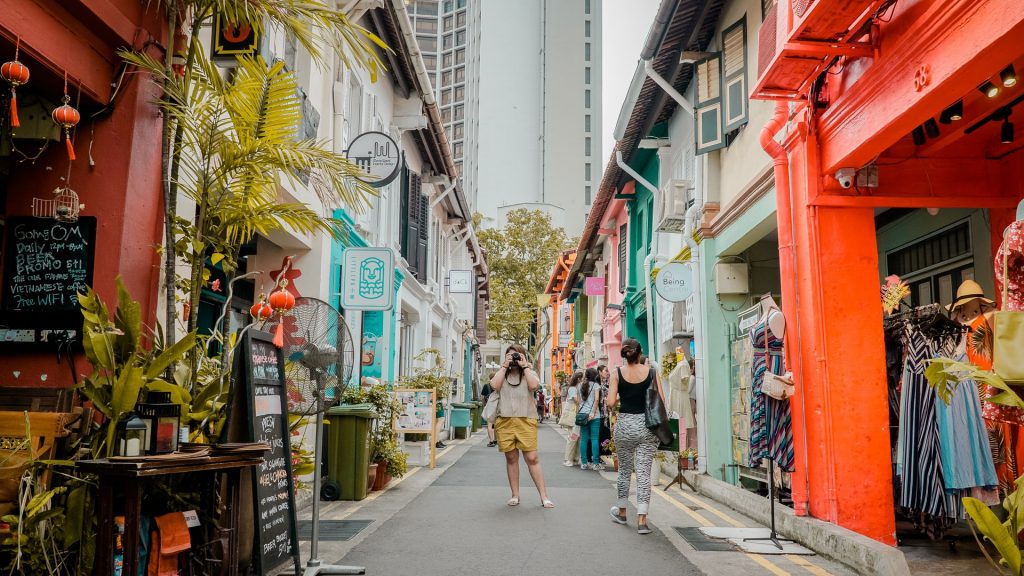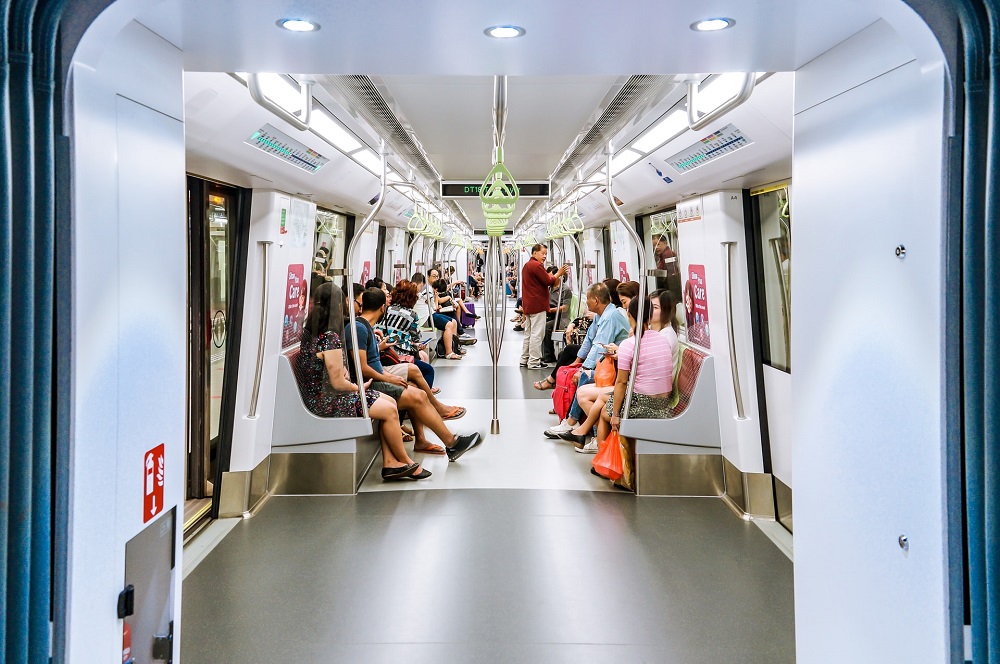If you work remotely, then technically, you should be able to live anywhere in the world. With the huge increase in ‘home’ working expected to continue for the foreseeable future, suddenly Brits the country over are daring to dream about living somewhere far flung and thrilling. Enter Singapore.
For digital nomads, Singapore is often ruled out because of its high cost of living. However, with smart budgeting (more on that later), living in Singapore doesn’t need to break the bank.
It’s also a hugely convenient and comfortable place to live. Since English is the main language used in school and at work in Singapore, being a digital nomad here is easy. That’s if you follow these 5 IDEAL tips if you’re moving to Singapore.
VISAS
Upon arrival in Singapore, UK citizens will be granted a Visit Pass which is valid for a period of 30 days. Once the visa expires, you’ll have to leave the country. However, you can apply for an Short Term Visit Pass extension which will allow you to stay for a maximum of 89 days from the date you initially entered the country.

NEIGHBOURHOOD KNOW-HOW
Singapore is about half the size of London, but there are neighbourhoods to suit all tastes and specific needs. Some popular with expats include:
Tiong Bahru: Likened to New York’s Brooklyn is Singapore’s hippest neighbourhood, Tiong Bahru. It’s also Singapore’s oldest residential neighbourhood and is steeped in history. Home to lots of cafes, bakeries and Tiong Bahru Market, which is one of the best hawker centres in town.
Holland Village: Known locally as ‘behind the flower garden’ due to its location behind the Botanical Gardens, Holland Village is an area which attracts artists, musicians and other creative types. The Holland Drive Market and Food Centre is another excellent hawker centre.
Tanjong Pagar: Sitting within the Central Business District, Tanjong Pagar is one of the main nightlife centres in the city, with several hip bars and lively clubs found here. The neighbourhood’s Little Korea provides some delicious dining options, or for something more local, Tanjong Pagar is famous for its chicken rice shops.
Sentosa: Just off Singapore’s southern coast sits Sentosa Island, which boasts three beaches and several resorts. As Propnex, experts on property in Singapore tell us, it’s a lovely place to spend time. However, rent is high.
Ideal tip: If you’re looking for somewhere to live, sites like Propnex list condos available for rent. Expat forums are also useful for finding condos and serviced apartments to rent.

CAFES & COWORKING SPACES
Singapore has no shortage of work friendly cafes with free coffee and most importantly, powerpoints. Something you may want to consider before you find somewhere to live in the city is proximity to a great cafe – because let’s face it, you didn’t move to Singapore just to work from your bedroom all day. Some of the best coffee spots to work from include Thus Coffee in the Sembawang Hills Estate neighbourhood and Wimbly Lu in the Serangoon neighbourhood.
There are some excellent co-working spaces in Singapore. If you’re looking for somewhere with a flexible plan, SG magazine in their article on The 27 Hottest Co-working Spaces in Singapore, recommends CLubCo which offers co-working space on-demands and say that “this collaborative space (with two locations in the CBD and one in the East) lets you drop in and drop out whenever you want with flexible passes and plans (from $50)”. We’re also fans of Genius Central where you only pay $18 to stay and work there for eight hours.
BUDGET, BUDGET, BUDGET
Managing your finances as a digital nomad can be a little tricky. Typically, the wage isn’t regular, the lifestyle is transient and the travel expenses constant. As such, living in the world’s most expensive city on a budget is no easy task. However, the Lion City doesn’t have to break your bank into a thousand tiny pieces. With some constant, consistent and clever monitoring of your outgoings, you can curtail any bad budgeting habits and live extremely well:
Eat street smart: Fortunately, and somewhat surprisingly in a city of affluence and aspiration, cheap eats can be found everywhere in Singapore. When dining out, locals often eat at the ubiquitous Hawker Centres which are found all over town. Perhaps the best is Lau Pa Sat (also known as Telok Ayer Market) where you’ll find a huge diversity of dishes and styles. Singapore’s Boon Tat Street, also known as ‘Satay Street’, turns into a street food lover’s paradise in the evening, where you can find grilled things on sticks for around 50p an item.
Singapore also lays claim to what was once the world’s cheapest Michelin star meal at Liao Fan Hong Kong Soya Sauce Chicken Rice & Noodle. It’s a simple, street food stall serving the popular dish expertly and at just £1.
Use public transport: Singapore has one of the most affordable public transport systems in the world. An EZ-Link card, which is a contactless payment system used on the island’s MRT and Light Rail system, as well as the bus, can be purchased for an initial fee of SG$12 (around £4).

Explore for free: Though there are loads of amazing things to do in Singapore that are, sadly, prohibitively expensive, there are also plenty of attractions which are free for the public to enjoy. The iconic Gardens by the Bay is the premier tourist attraction and won’t cost you a dime to enter either. The Singapore Botanic Gardens, again free to all, houses 1000 species and the world’s largest tropical orchid display. Visiting some of Singapore’s best beaches is another budget option; we love Changi Beach which has lots of wonderful trails that attract walkers and fitness fanatics alike. The beach is great for picnics and has barbecue pits that anyone can use too.
Let us direct you to our article on 5 of the best beaches in Singapore for more on that.
BEHAVE YOURSELF
Much has been written about Singapore’s draconian laws relating to public decency, so we won’t dedicate too much more space to listing them. But they are pretty wild, make no mistake, so it’s best to behave yourself in the Lion City because the fines are one hell of a deterrent.
To cite some examples, walking naked in your apartment or not flushing the toilet after using it could cost you $2000 and $500 respectively. You can also be fined for irritating people with a musical instrument or if you’ve annoyed someone with your drunkenness in a public place. You can also be fined for exciting or uttering obscene lyrics from a song. Stay wise to these restrictions if you want to stay in credit.





